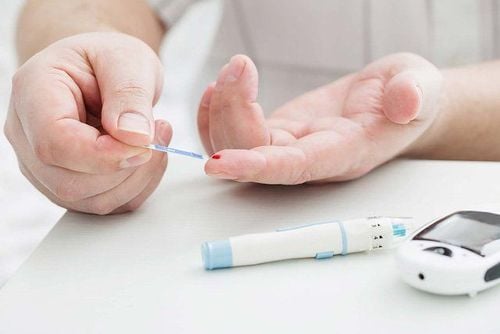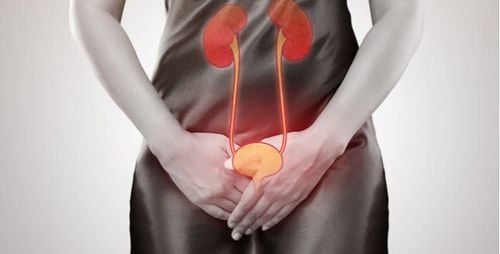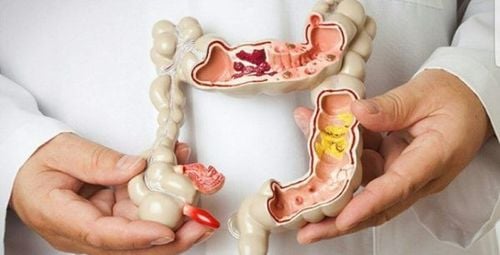The odor of urine can be influenced by food and medical conditions. Some types of cancer may cause malodorous urine; however, the human nose cannot detect this. Therefore, if you notice a malodor in your urine and are concerned that this might be a sign of cancer, you can rest assured that cancer is not the cause of this change.
1. Is malodorous urine a sign of cancer?
The malodor of urine is not a sign of cancer. Research has shown that cancer emits a specific smell, which can be detected by specially trained dogs, but the human nose cannot recognize the malodor of urine caused by cancer.
If you notice that your urine has a malodorous scent, such as a sulfur-like odor, it does not mean you have cancer. Instead, it could be a sign of other health conditions, such as diabetes or a urinary tract infection…
2. What can cause malodorous urine?
The kidneys play a role in filtering blood, removing toxins and waste products from the blood into the urine. Therefore, urine typically contains waste substances, toxins, and compounds such as urea, creatinine, salts, and uric acid. If you drink plenty of water, the concentration of waste products in the urine will be lower, reducing the malodor of the urine compared to when you drink less water.
In addition, several other factors can alter the smell of urine, such as medications, health conditions, foods, and beverages...
2.1. Dehydration
Insufficient water intake is a cause of malodorous urine, which may have a stronger and more pungent smell than usual. When you are dehydrated, less urine is excreted, leading to a higher concentration of waste products, which can make the urine smell like sulfur or ammonia.
2.2. Diabetes
Individuals with diabetes have elevated blood glucose levels that exceed normal ranges. Some glucose is excreted into the urine, causing it to have a sweet or fruity odor.
In some cases, sweet-smelling urine can serve as an initial indicator of diabetes. Therefore, individuals should seek medical consultation for accurate testing if this symptom is noticed.

2.3. Urinary Tract Infection
Bacterial infections in the urinary tract can cause urine to have a malodorous smell. These infections may occur in the bladder, kidneys, urethra, or ureters. Urinary tract infections can also cause pain during urination.
Patients with urinary tract infections often have dark-colored, cloudy, or bloody urine…
2.4. Bacterial Vaginosis
Bacterial vaginosis can cause malodorous urine in women. It is caused by bacteria and classified as a vaginal infection. This condition results in vaginal discharge with a fishy odor, which may mix with urine during urination, causing the malodor.
2.5. Trichomonas
Trichomoniasis is a sexually transmitted infection. Similar to bacterial vaginosis, trichomoniasis can alter the smell of vaginal discharge, causing malodorous urine in both men and women.
2.6. Food
Certain foods can alter the odor of urine. For example, consuming asparagus can cause urine to smell like sulfur. Asparagus contains asparagusic acid, a sulfur compound excreted in the urine.
Vegetables from the Allium family, which also contain sulfur, may alter the odor of urine in some individuals. These vegetables include:
• Onions
• Garlic
• Chives
2.7. Medications and Supplements
Medications containing sulfate compounds can make urine smell like sulfur. These medications are used to treat conditions such as diabetes and rheumatoid arthritis. Examples include:
• Glyburide
• Sulfasalazine
• Sulfonamide antibiotics
Supplements like vitamin B6 can also cause malodorous urine, especially if consumed in amounts exceeding the recommended dose.

3. New Research on the Odor of Cancer
Patients with cancer detected at an early stage have a higher survival rate and experience less pain during treatment. For this reason, scientists are continuously researching methods to detect and eliminate cancer cells in the early stages.
Although the human nose cannot recognize the odor of cancer, studies have shown that cancer emits a unique scent. The exact cause of this phenomenon has not been conclusively proven. Scientists believe that the odor of cancer may be due to elevated levels of malodorous molecules called polyamines or volatile organic compounds.
Research has also found that dogs can be trained to recognize the odor of certain types of cancer through urine, feces, breath, and tumor tissue. Cancers detectable by trained dogs include:
• Ovarian cancer
• Kidney cancer
• Prostate cancer
• Lung cancer
Electronic nose technology using chemical sensors is also being studied as a potential non-invasive diagnostic tool for early cancer detection and other diseases.
4. When Should You See a Doctor?
You should visit a healthcare facility for examination and diagnosis if malodorous urine is accompanied by any of the following symptoms:
• Fever
• Blood in the urine
• Cloudy urine
• Pain or burning during urination
• Abdominal or lower back pain
• Pelvic pain or pressure
• Vaginal itching
In conclusion, malodorous urine is not a symptom or sign of cancer. However, it may indicate other conditions such as urinary tract infections or diabetes... Therefore, you should visit a hospital or healthcare facility for an accurate diagnosis.
To arrange an appointment, please call HOTLINE or make your reservation directly HERE. You may also download the MyVinmec app to schedule appointments faster and manage your reservations more conveniently.
Reference source: healthline.com
To arrange an appointment, please call HOTLINE or make your reservation directly HERE. You may also download the MyVinmec app to schedule appointments faster and manage your reservations more conveniently.








